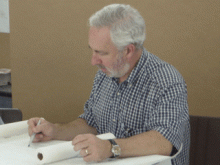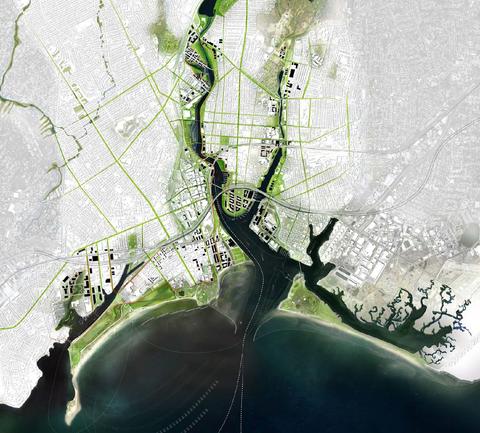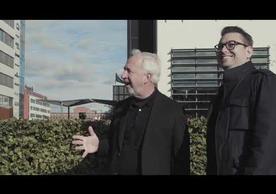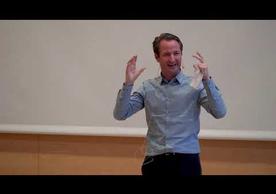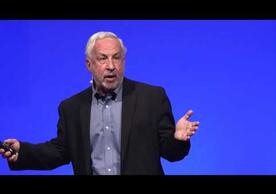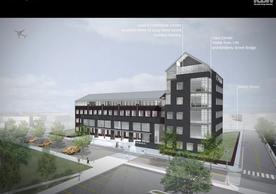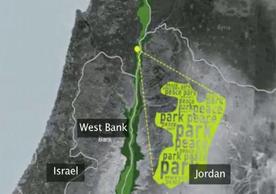Alan Plattus, B.A., M.Arch
Alan Plattus is Professor of Architecture and Urbanism at the Yale University School of Architecture. He has an independent practice as an urban design consultant and has lectured across the country and abroad on urban history and architectural theory. He also founded and directs the Yale Urban Design Workshop, a community design center based at the School of Architecture that has pursued practice-based research on the form and function of neighborhoods, towns and regions, and undertaken civic design projects in cities and towns throughout Connecticut. Current projects include downtown plans for the towns of Milford and Madison, ongoing work for the Dwight-Edgewood neighborhood in New Haven, including a recently completed community center at the Dwight School, plans for a neighborhood daycare center, and a neighborhood land use plan, as well as research on design strategies for Main Street and neighborhood revitalization. Professor Plattus frequently conducts design charrettes and policy workshops for citizens and civic leaders, and is working with the Connecticut Main Street Center on a design manual for Main Street communities. For his contributions to the City of New Haven, Professor Plattus was presented with the Elm-Ivy Award by the Mayor of New Haven and the President of Yale University.
Professor Plattus was the Chairman of the Flushing Meadows Corona Park Task Force, an interdisciplinary team that prepared a new master plan for the 1200-acre park in New York City. The plan was awarded a Progressive Architecture Urban Design Citation. He has also collaborated with Diana Balmori on the design of an urban greenway along the route of the abandoned Farmington Canal corridor in New Haven. This project has been awarded a Connecticut AIA/ALA Public Space Award.
Along with his work as an urban designer, Professor Plattus has served on the Committee for the Third Regional Plan of New York and is a Fellow of the Institute for Urban Design. He was the Chair of the Education Task Force for the Congress for the New Urbanism. In New Haven, he was a member of the Research Committee of the Regional Economic Growth Partnership and serves on the Boards of the New Haven Trust for Historic Preservation, the Eli Whitney Museum, the Foote School, and the Connecticut Main Street Center.
Professor Plattus has published scholarly and critical articles on topics ranging from the history of cities to recent American architecture and urban design. He edited and wrote an introduction to a new edition of The American Vitruvius: An Architect’s Handbook of Civic Art (Princeton Architectural Press, 1989), a crucial document of American urbanism in the early twentieth century. He is a senior editor of the recently published reference work, Time-Saver Standards for Urban Design, published by McGraw-Hill. His scholarly work includes research in European and American archives on the history of civic pageantry, on which he has published several articles and lectured widely, and funded research on industrial and post-industrial cities. He is a member of the editorial board of Architectural Research Quarterly, and writes regularly for the Hartford Courant on architecture and planning issues.
In 1987, Professor Plattus helped to organize, chair, and edit the published proceedings of the annual meeting of the Association of Collegiate Schools of Architecture, the theme of which was Architecture and Urbanism. He has also served on the ACSA Board of Directors and was the Associate Editor of the Journal of Architectural Education. He served three years as the ACSA appointee to the Board of Directors of the National Architectural Accreditation Board and was the President of the Board in 1995-96.
Professor Plattus teaches both undergraduate and graduate level courses at the Yale School of Architecture, where he was Associate Dean of the School for ten years. He also directs the School’s China Studio, a three-way collaboration between Yale, Tongji University in Shanghai and the University of Hong Kong. He received his B.A. summa cum laude from Yale in 1976, and his Master of Architecture degree from Princeton University in 1979. Before returning to Yale, he taught for seven years at Princeton, and since returning has been a Fellow of the Whitney Humanities Center and of Silliman College. He lives with his wife, Nancy, a Professor at the Yale School of Medicine, and two children, in the Westville neighborhood of New Haven.
Courses
Housing Connecticut: Developing Healthy and Sustainable Neighborhoods
In this inaugural interdisciplinary clinic taught between the School of Architecture, School of Law, and School of Management, and organized by the Yale Urban Design Workshop, students will gain hands-on, practical experience in architectural and urban design, development and social entrepreneurship while contributing novel solutions to the housing affordability crisis. Working in teams directly with local community-based non-profits, students will co-create detailed development proposals anchored by affordable housing, but which also engage with a range of community development issues including environmental justice, sustainability, resilience, social equity, identity, food scarcity, mobility, and health. Through seminars and workshops with Yale faculty and guest practitioners in the field, students will be introduced to the history, theory, issues, and contemporary practices in this field, and will get direct feedback on their work. Offered in partnership with the Connecticut Department of Housing (DOH) as part of the Connecticut Plan for Healthy Cities, proposals will have the opportunity to receive funding from the State both towards the implementation of rapidly deployed pilot projects during the course period, as well as towards predevelopment activities for larger projects, such as housing rehabilitation or new building construction. Students will interact with the Connecticut Commissioner of Housing and the Connecticut Green Bank.
Projected Enrollment: 12 Architecture, 6 Law, 6 Management
Advanced Design Studio: Coastal New England: History, Threat, and Adaptation
This studio will consider broadly the natural and human landscape of coastal New England, with a specific focus on the island of Nantucket and related coastal sites. We will consider the ongoing evolution of this unique region in light of the impacts of climate change and sea level rise along with changing environmental, economic, and cultural conditions. Projects in the studio will propose strategies that support coastal adaptation at the scale of the region, illustrated through specific architectural and landscape interventions on Nantucket and in other coastal cities and towns.
